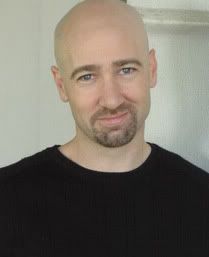China Stories Pt. 35: Time to Go
"The Government called troops into the capital this morning and imposed martial law in parts of the city to crack down on China's growing democracy movement. But tens of thousands of people rushed out of their homes to block troops from reaching student demonstrators in the central square.
"The Beijing municipal authorities imposed strict limits on the activities of foreign journalists, banning interviews or taping on the streets or at government offices, schools, factories and mines. ''Any violators will be stopped according to the law,'' the order said.
"In mid-morning, loudspeakers on Tiananmen Square in the center of Beijing announced that martial law had been imposed in some parts of the capital. The announcement said this meant restrictions on movement within the city, but it did not give details. The crowd of workers and students in the square had swelled by then to about 200,000."
- Nicholas Kristof, New Tork Times, May 20, 1989
"Huge throngs, possibly amounting to more than one million Chinese, took to the streets today to defy martial law and block troops from reaching the center of the capital, effectively delaying or preventing the planned crackdown on China's democracy movement. Troops approaching Beijing on at least five major roads were halted or turned back by the largest crowds to have gathered so far in a month of almost continuous protests. Students and ordinary citizens erected roadblocks or lay in the path of army trucks, while others let the air out of their tires.
"[ The Associated Press, in a report Sunday from Beijing, said soldiers had set up roadblocks to the center of the capital and occupied its train station. The report also said as many as 70,000 troopers may have moved into the city center by subway and followed connecting tunnels to the walled palace, the history museum and the Great Hall of the People on three sides of the vast Tienanmen Square. ]"
- New York Times, May 21, 1989
"There was exhilaration as well as exhaustion on central Tiananmen Square as dawn broke this morning, for many of the tens of thousands of students occupying the square had earlier written their wills after widespread rumors that brutal repression would begin during the night. While many still fear that there will be violence, there is a sense of triumph in the capital that ordinary citizens have been able to prevent the Government from carrying out martial law more than two days after Prime Minister Li Peng ordered it."
- New York Times, May 22, 1989
The introduction of martial law, and the attendant dire warnings of consequences for those who violated it, changed the tone of events. It also specifically forbid the activities that I was engaged in on behalf of CBS. As a person who planned to have a long-term association with China, I started to really think about what it might mean to be arrested or expelled.
Around the square, the atmosphere grew much more tense. Helicopters flew low up and down ChangAn Boulevard, and circled the square. Students (and others) placed wet handkerchiefs over their faces, fearing that the helicopters would drop tear gas. One definitely got the sense that something was imminent, that the endgame could happen at any time.
Then they arrived by train and occupied the train station. This was really, to my mind, the beginning of the end, the point when regular people started to see now way around a violent confrontation.
Around this time (it was May 19 to be precise), I was in the northeast corner of the square, where CBS had set up. We had been in the square all night. At some point in the wee hours of the morning, a student came over to give me a tip.
"Zhao Ziyang is in the square. He came to talk to the students."
I was polite to the student, but skeptical. Why would China's Premier be in the square talking to students? Besides, I had heard many many rumors by this point - Deng Xiaoping is dead, Li Peng is stepping down, Li Peng was attacked by his bodyguards - that I discounted it heavily.
Well, it was true. Zhao had come, in effect to apologize to the students that he couldn't protect them. He had been relieved of all of his positions, dismissed. In hindsight, this too, seemed like a fateful step - here was the final brake on the senior leaders' impulse to crack down, and he was saying, in effect, I tried. I'm sorry.
By this point, it was very difficult to maneuver around the city - it could still be done, but it required ingenuity and knowledge of the back streets, and more than a little guts - especially for the locals. It was getting harder for us to be useful to CBS, too.
Once martial law was declared, and the train station was occupied, most of our taxi drivers ceased to work for us. A few stayed on, tempted by offers of more money. Instead of making $70 a month, they were making $100 a day. Even then, they wouldn't go near the train station.
At this point, my parents' tour had concluded, and they were in Hong Kong. They called me and said, calmly but urgently, "if you wanted to come to Hong Kong, NOW, we would be very much okay with that. We think that might be a really good idea."
I discussed it with my friends, and decided. May 23, 1989. It was time to go.



1 Comments:
I soooo wish this was a book that I could just keep reading!
As i've said before, your writing is so compelling.
Post a Comment
<< Home